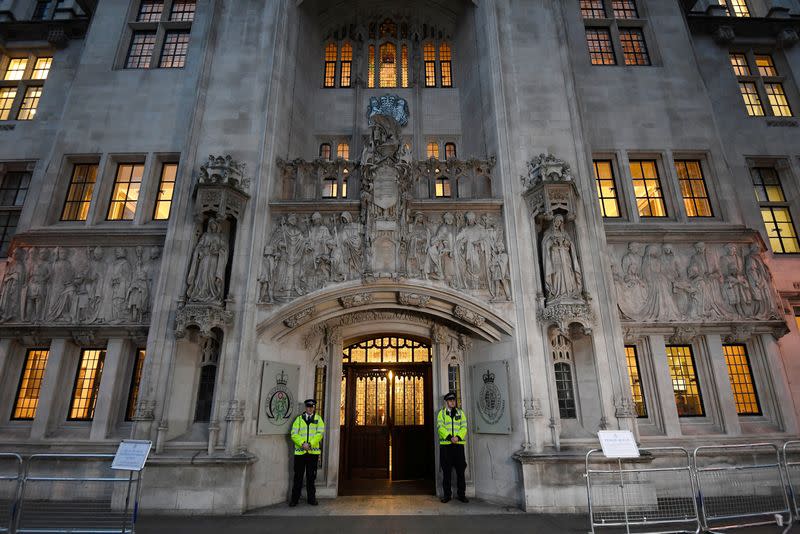UK trade union law breaches workers' rights, Supreme Court rules

LONDON (Reuters) - British trade union law breaches workers' human rights as it does not protect them from sanctions short of dismissal for taking part in industrial action, the United Kingdom's Supreme Court ruled on Wednesday.
Fiona Mercer, a care-worker and trade unionist from the northwest of England, took legal action against her employer after she was suspended in 2019 during planned strike action, which prevented her from talking to her colleagues.
In 2022, the Court of Appeal in London ruled British trade union law may be incompatible with the European Convention on Human Rights (ECHR) but nonetheless dismissed her case after an intervention by the British government.
But on Wednesday, after a nearly five-year legal battle, Britain's highest court upheld Mercer's appeal in a landmark decision on trade union rights.
Mercer said she was "delighted" with the ruling, while her trade union Unison's general secretary Christina McAnea called it "a victory for every employee who might one day want to challenge something bad or unfair their employer has done".
"No one strikes on a whim," McAnea said in a statement. "There are many legal hoops to be jumped through first. But when a worker decides to walk out, they should be able to do so, safe in the knowledge they won't be victimised by a spiteful boss.
"The government must now close this loophole promptly. It won't cost any money and isn't difficult to do."
Britain's Department of Business and Trade did not immediately respond to a request for comment.
Workers who are dismissed for taking part in lawful strike action are protected in UK trade union law and can bring a lawsuit for unfair dismissal, the Supreme Court said.
However, employees who face disciplinary action short of dismissal have no express protection, which the Supreme Court ruled put the UK in breach of the ECHR.
"The right of an employer to impose any sanction at all short of dismissal for participation in lawful industrial action nullifies the right to take lawful strike action," Judge Ingrid Simler said in the court's written ruling.
She added that the current state of the law "encourages and legitimises unfair and unreasonable conduct by employers".
Wednesday's landmark decision follows a protracted period of industrial action by workers in many industries, who have gone on strike to improve their pay and conditions.
(This story has been corrected to fix the acronym to ECHR from EHRC in paragraph 3)
(Reporting by Sam Tobin, Editing by Paul Sandle and Angus MacSwan)

 Yahoo News
Yahoo News 
